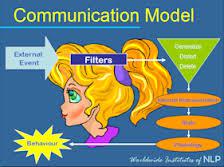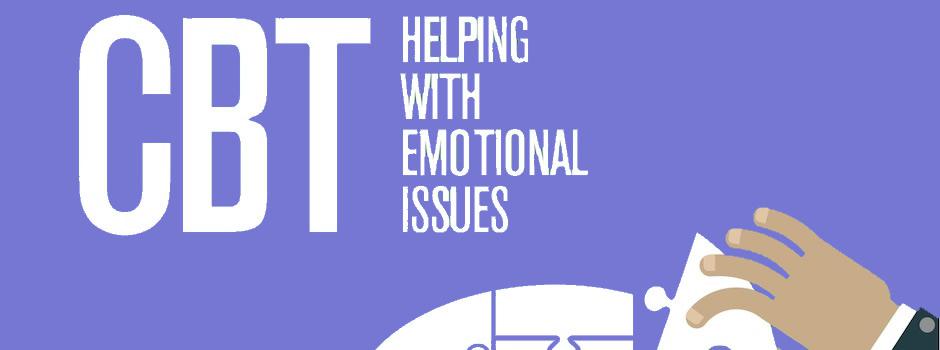Child and Family CBT Services Ltd
What is CBT?
Cognitive Behaviour Therapy (CBT) is a talking therapy. It can help people who are experiencing a wide range of mental health difficulties. What people think can affect how they feel and how they behave. This is the basis of CBT. During times of mental distress, people think differently about themselves and what happens to them. Thoughts can become extreme and unhelpful. This can worsen how a person feels. They may then behave in a way that prolongs their distress. CBT practitioners help each person identify and change their extreme thinking and unhelpful behaviour. In doing this, the result is often a major improvement in how a person feels and lives. (Taken from the BABCP.com website, 2016).
Principles of CBT
CBT involves developing a shared understanding or formulation of a client's problem. This understanding shall inform both therapist and client regarding treatment. CBT is a non-judgmental approach in which both client and therapist work together to reach shared goals and/or objectives. There are no right or wrong ways of thinking in CBT although some thinking styles are considered more useful in helping clients feel lest stuck and in helping them reach their goals. CBT aims to increase the awareness of thoughts, feelings, physical sensations and behaviour. It is suggested that through this awareness change can be initiated. CBT aims to encourage broader and more flexible thinking styles that promote acceptance and or compassion towards both self and others. Consequently, this creates a reduction in anxiety and/or stress levels (Taken from the book Call Connections with CBT, 2008).
Benefits: (research suggests CBT is helpful)
- CBT is a very effective treatment for most psychiatric or psychological difficulties including anxiety, depression, OCD, self esteem, eating disorders, anger, abuse etc
- Clients feel better about themselves
- Clients become more self aware and have a better understanding of their thoughts and feelings thus leading to improved emotional literacy
- Clients learn strategies and new ways to cope
- Behaviour improves – less time need by parents/teachers offering additional support
- Learning and emotional well-being can be made the priority as the worries and anxieties are dealt with
- Reduced risk of further emotional/mental health difficulties in the future
- Less involvement/time away from school seeing outside professionals (CAMHS etc)
- Support for parents/teachers ideas for how best to help children
EMDR (Eye Movement Desensitisation & Reprocessing)
EMDR is an experiential therapy. NICE Guidelines for the treatment of Post Traumatic Stress Disorder (PTSD) advise that the most effective treatments are EMDR and CBT. The use of EMDR continues to be researched in other areas and can be helpful with a number of other needs – such as:
• Phobia
• Anxiety
• Depression
• Anger
• Behavioural issues
• Bad dreams/nightmares
• Low self esteem
• Performance enhancement
• Pain
• Childhood traumas

EMDR works on the belief that when something difficult happens to us (a trauma) we store the experience in our memory. Sometimes these memories can become very painful for people and affect their daily lives. Memories can be stored within our mind in different ways. Some traumatic experiences are stored with the emotions and body sensations that were part of the event. When the memory is recalled it brings with it the pain and discomfort of the event. By reprocessing those experiences with the use of EMDR, the way the memory may be stored can change. The aim of the therapy is for the person to be able to recall those difficult events without feeling all the pain and discomfort. This can support change for the person in their current day to day life experiences. EMDR can focus upon the past, present and future events.
Research suggests that EMDR is an effective therapy for both children and adults although the protocol generally needs to be adapted for very young individuals. Further reading on EMDR can be found on EMDR Association UK and Ireland home page.
NLP (Neuro-Linguistic Programming)

NLP is the study of human excellence. It is an attitude and methodology that generates a range of cutting edge techniques which lead to rapid and long lasting change in your self and others. It was developed through looking at people who were highly successful in their particular field and identifying the common factors (conscious and unconscious) that contributed to their success. It looks at and utilises the power of the brain, communication and habitual or "self-programmed" responses.
NLP allows people to become aware of unconscious thoughts and behaviours that may limit them. These thoughts and behaviours can then be changed to new ones or the emphasis can be changed to open up new opportunities or help achieve particular goals.
NLP can be applied to nearly any area in a person's life, whether in business, relationships, health issues, phobias, education, personal achievements or enhanced creativity.
Although I am a fully Licensed NLP Master Practitioner I generally use my NLP training expertise as part of a formulation based approach and as a way of enhancing my CBT and/or EMDR practice, rather than as treatment in itself. By using some NLP theory and strategies in conjunction with CBT helps enhances my practice and offers clients a more eclectic approach.







